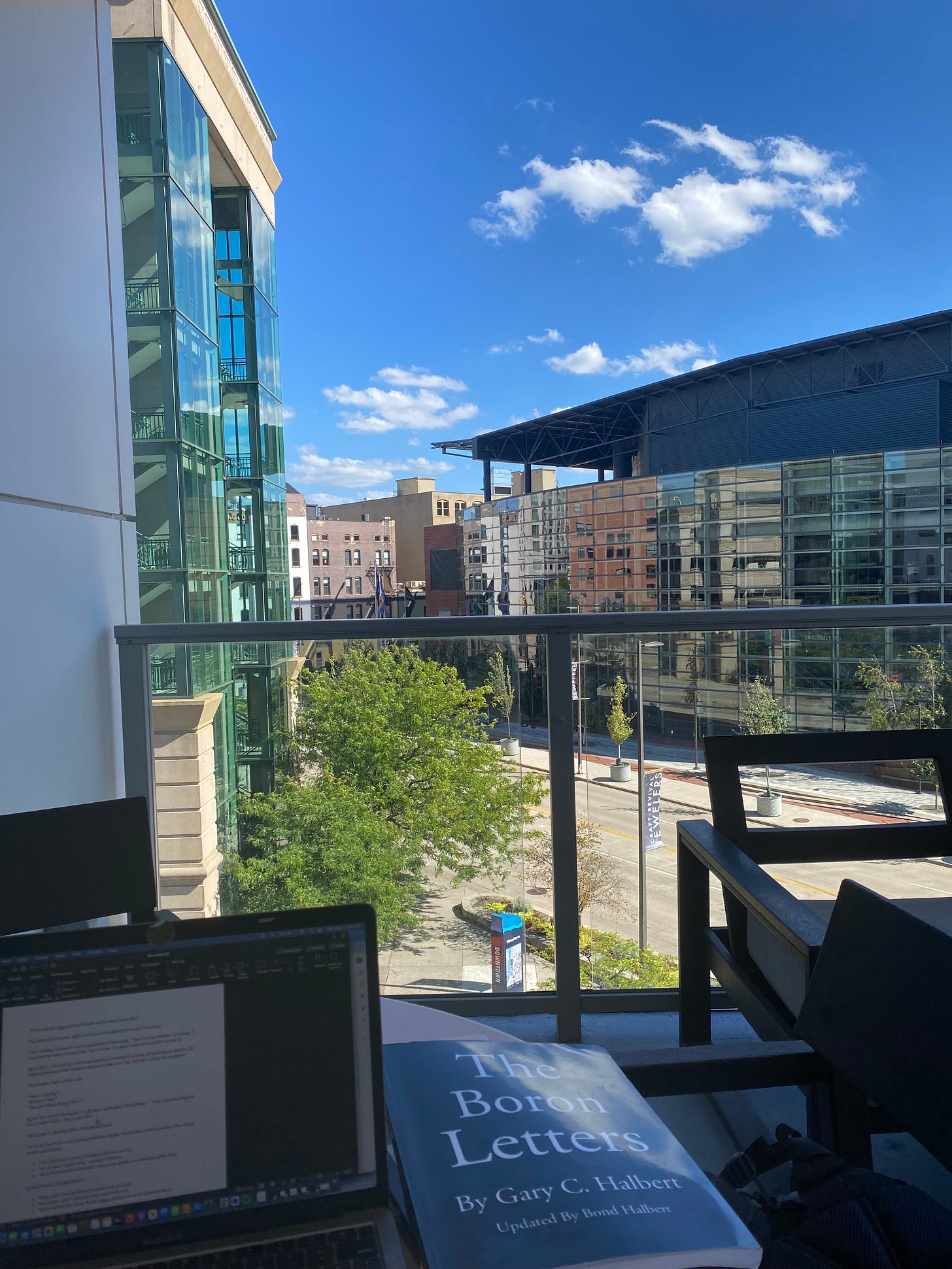"Do what you love and you'll never work." Is that true?
"The secret of joy in work is contained in one word — excellence. To know how to do something well is to enjoy it." - Pearl S. Buck
“Do what you love and you’ll never work a day in your life.”
You’ve heard this one, right? And you’ve wondered if it’s true?
I’ll tell you.
I love writing. I know for some people that’s like saying, “I love the Iron Maiden” or “I love election-year commercials,” but it’s true. It’s what I love and it’s what I’m best at.
So in 2022, I started this whimsical journey of writing for a living.
Of pursuing my passion.
Of flipping back and forth between Memento Mori and “eh, this sort of feels like purgatory.”
And people often ask:
“How’s it going?” (Better than I expected.)
“What’s it like?” (Hard. Stressful. Fulfilling.)
“Are you happy you did it?” (Yeah.)
So for the next three Wednesdays, I’m going to write about that phrase: “Do what you love and you’ll never work a day in your life.”
Here’s part 1, starting with a little background.
I’m 29. In seven years since graduating college, I’ve racked up a few unique career experiences.
For a little over a year, I’ve been a full-time writer.
For six years before that, I worked in finance.
For a few months in between, I was a tour guide on a Hawaiian coffee farm.
So that means I’ve experienced …
Work I love but doesn’t traditionally pay well
Work I didn’t enjoy but paid extremely well
Work that fits the Jimmy Buffett lifestyle we’ve all dreamed about
Here’s what I’ve learned:
1. Work is work.
Even if you love what you do, you have to work. Heck, there’s a good chance that if you love what you do, you’ll be working more.
A big reason it’s so difficult to monetize art as a profession is because there are so many people who are passionate about the same thing. Writing. Drawing. Singing.
And to pursue those passions, there’s almost no barrier to entry.
It doesn’t take an advanced degree to turn your passion into a career. It takes either courage or delusion, and we’re all allowed access to those for free.
That means saturation. Which makes it more difficult to stand out.
I worked far fewer hours at my corporate job than I do as a writer. Now, a lot of that is because I’m choosing to freelance instead of working for an employer, but the point is this: Pursuing a passion puts you toe-to-toe against a bunch of other people who are either idealistic nitwits or overzealous lionhearts.
You don’t beat those people with luck — you beat them by working harder and being more talented — so you better hope you’re prepared for the first and you’re blessed with the second.
Work is work. But you know what? There are a lot of days I’d rather be working than on the golf course.
And I never said that at my corporate job.
We’ll address that next week.


